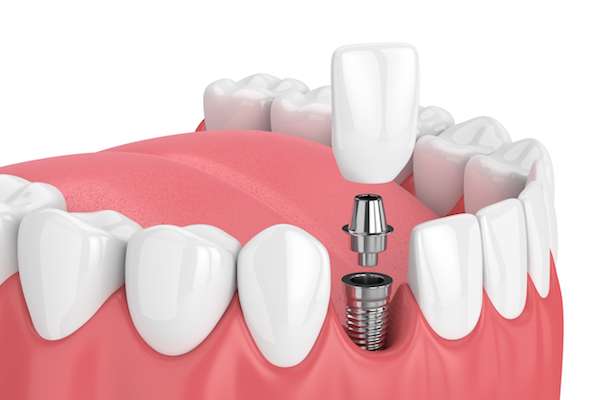Dental implants have revolutionized the field of restorative dentistry, offering a permanent solution for missing teeth that looks and feels natural. However, not everyone is an ideal candidate for this procedure. Understanding what makes you a good candidate for dental implants can help you make an informed decision about your oral health. A dental implants specialist in Redlands, CA, will help you identify your candidacy.
In this blog, we’ll explore the key factors that determine whether dental implants are right for you.
1. Sufficient Bone Density
One of the most important criteria for dental implant candidacy is having sufficient bone density in your jaw. This is crucial because the implant needs to be securely anchored in the jawbone through a process called osseointegration. Moreover, if you have experienced bone loss due to periodontal disease or prolonged tooth loss, you might require a bone graft to build up the bone before an implant can be placed.
Signs You Have Enough Bone Density:
- No history of severe gum disease
- Minimal bone loss visible in dental x-rays
- Healthy jawbone structure
2. Healthy Gums
Healthy gums are essential for the success of a dental implant. Remember, gum disease can affect the healing process and lead to implant failure. Therefore, if you have active gum disease, it must be treated before you can be considered for implants.
Indicators of Healthy Gums:
- Pink, firm gums that do not bleed easily
- No signs of infection or inflammation
- Regular dental check-ups with a focus on gum health
3. Good Oral Hygiene
Maintaining excellent oral hygiene is critical both before and after getting dental implants. Remember, poor oral hygiene can lead to infections and complications, jeopardizing the success of the implant. So, candidates for dental implants should be committed to brushing, flossing, and regular dental visits.
Oral Hygiene Practices:
- Brushing at least twice a day
- Flossing daily
- Using an antiseptic mouthwash
- Regular professional cleanings and check-ups
4. Overall Health
Your overall health plays a significant role in determining your suitability for dental implants. Remember, certain medical conditions and lifestyle factors can affect healing and increase the risk of complications.
Health Considerations:
- Non-smoker: Smoking can impede healing and increase the risk of implant failure.
- Chronic Conditions: Conditions like diabetes, heart disease, or autoimmune disorders need to be well-managed.
- Medications: Some medications can affect bone health and healing. Always provide your dentist with a complete list of medications you are taking.
5. Adequate Jaw Development
For younger patients considering dental implants, it’s essential that their jawbone has fully developed. In fact, placing implants in a jaw that is still growing can lead to complications and misalignment over time.
Age Considerations:
- Typically, candidates should be adults with fully developed jawbones.
- For teenagers, a thorough evaluation by a dental specialist is required to assess readiness.
6. Commitment to the Process

Getting dental implants is not a one-time event but a multi-step process that requires several dental visits over a period of months. So, it’s important to be committed to this journey for successful outcomes.
Steps Involved:
- Initial Consultation: Assessment and planning.
- Bone Grafting (if needed): Prepping the jaw for implant placement.
- Surgical Placement: Inserting the implant into the jawbone.
- Healing Period: Allowing time for osseointegration.
- Abutment Placement: Attaching connectors to the implant.
- Crown Placement: Fitting the replacement tooth.
7. Realistic Expectations
Understanding what dental implants can and cannot do is vital. While they are a fantastic solution for many people, they are not a miracle cure for all dental issues. So, having realistic expectations about the procedure, recovery time, and possible outcomes will help you make a well-informed decision.
What to Expect:
- A natural look and feel similar to real teeth
- Improved ability to eat and speak
- Durability with proper care
- Potential need for initial adjustments and follow-up care
Conclusion
Dental implants can significantly improve your quality of life by restoring your smile and the functionality of your teeth. However, not everyone is an ideal candidate. In fact, factors such as bone density, gum health, oral hygiene, overall health, jaw development, commitment to the process, and realistic expectations all play crucial roles in determining your suitability for dental implants.
So, if you’re considering dental implants, consult with your dentist to evaluate your specific situation.

